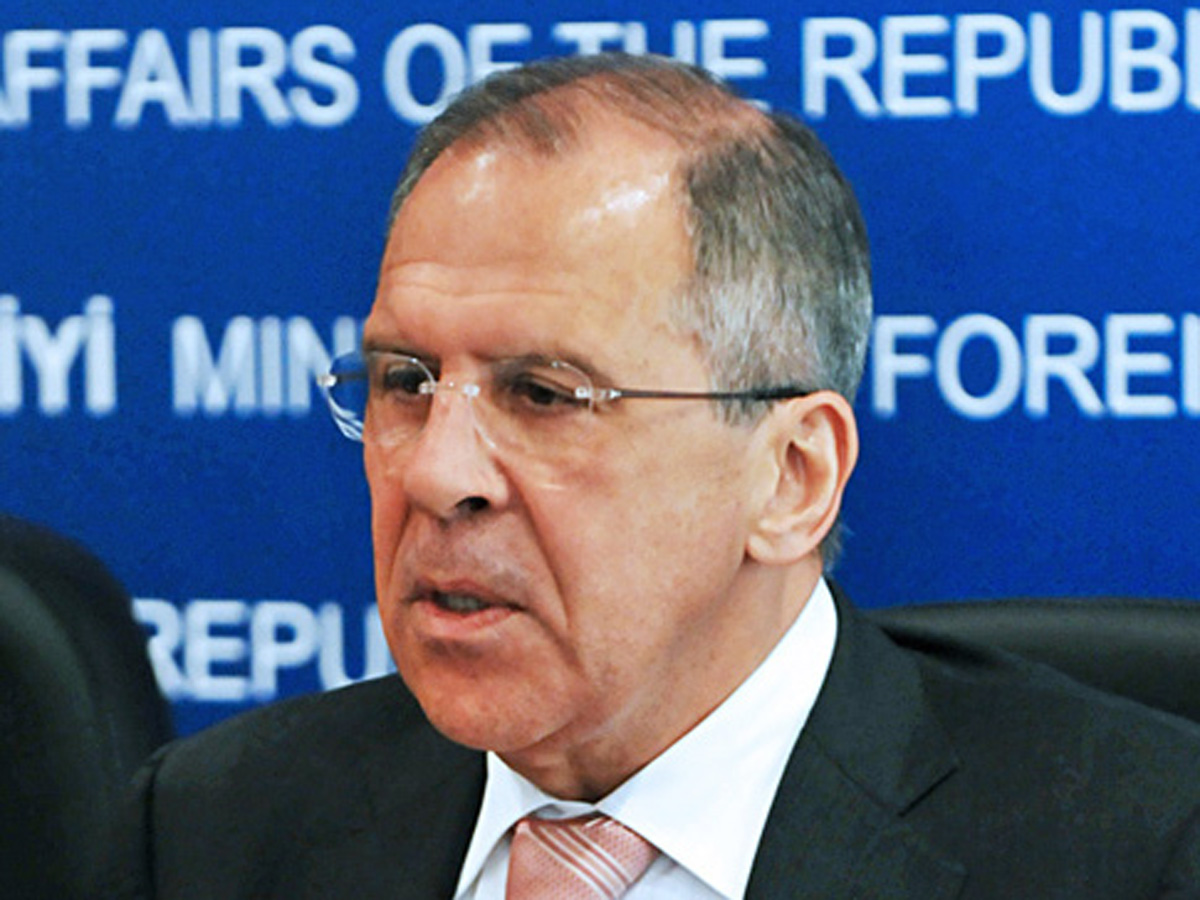Baku, Azerbaijan, Apr.4
Trend:
It is necessary to immediately stop the ceasefire violation in the Nagorno-Karabakh conflict zone, said Russian Foreign Minister Sergei Lavrov Apr.4, during a joint press conference with Moldovan counterpart Andrei Galbur, 'Russia 24' TV channel reported.
No difficulties should be created in renewing the efforts for peaceful settlement of the conflict, he added.
Lavrov said that he and Russia's Defense Minister Sergei Shoigu contacted their Azerbaijani counterparts and expressed concern over the situation and urged for the immediate ceasefire.
"In contact with Baku and Yerevan, we continue to ensure that signals are heard from the US, Russia and France, which are co-chairs of the OSCE Minsk Group," said the minister.
Lavrov said that the OSCE Minsk Group has made a statement similar to that of Russia.
"OSCE Minsk Group is a sufficiently great mechanism and it has set the principles which should be the basis for the final settlement of the conflict," Russia's foreign minister said. "A more compact mechanism is needed for practical work and OSCE Minsk Group co-chairs are such a mechanism which works through its official representatives together with the OSCE special representatives."
"OSCE Minsk Group co-chairs are in permanent contact with the conflicting sides, they come to Baku and Yerevan, visit the contact line," he said. "OSCE Minsk Group is the most important mechanism for resolving the Nagorno-Karabakh conflict and this mechanism should be fully supported."
The progress achieved by the OSCE Minsk Group in contacts with the conflicting sides is of great importance, according to Lavrov.
The documents, as well as those signed by heads of the OSCE Minsk Group countries, envisage the peaceful political settlement of the Nagorno-Karabakh conflict based on the principles of the Helsinki Final Act in all their totality, he added.
On the night of Apr. 2, all the frontier positions of Azerbaijan were subjected to heavy fire from Armenians, who were using large-caliber weapons, mortars, grenade launchers and guns. Azerbaijani settlements near the frontline densely populated by civilians were shelled as well.
A counter-attack was carried out following the provocations of the Armenian armed forces on the night of Apr. 2.
Six Armenian tanks, 15 gun mounts and reinforced engineering structures were destroyed and more than 100 servicemen of the Armenian armed forces were wounded and killed during the shootouts.
Twelve servicemen of the Azerbaijani armed forces heroically died, one Mi-24 helicopter was shot down and one tank was damaged on a mine.
Three more soldiers of Azerbaijan were killed during the past day and night as a result of the ceasefire violation.
On Apr. 4, Azerbaijani armed forces destroyed three tanks and eliminated around 30 servicemen of the Armenian armed forces.
The conflict between the two South Caucasus countries began in 1988 when Armenia made territorial claims against Azerbaijan. As a result of the ensuing war, in 1992 Armenian armed forces occupied 20 percent of Azerbaijan, including the Nagorno-Karabakh region and seven surrounding districts.
The two countries signed a ceasefire agreement in 1994. The co-chairs of the OSCE Minsk Group, Russia, France and the US are currently holding peace negotiations.
Armenia has not yet implemented the UN Security Council's four resolutions on withdrawal of its armed forces from the Nagorno-Karabakh and the surrounding districts.






